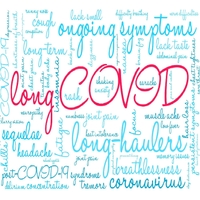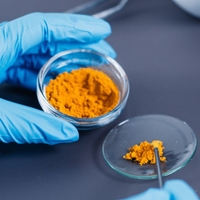
In 5 minutes with ...
Jacqui and Wendy discuss their experiences post COVID-19 infection.
Jacqui and Wendy's details ...
Jacqui Fahey, Naturopath, Head of Education at vital.ly
Wendy McLean, Naturopath, Senior Writer and Presenter at vital.ly
How are you both tracking post covid? And how long has it been (in recovery) for each of you?
Jacqui
The first month of post-COVID was tough. I kept dipping in and out of symptoms, mainly asthma and lung issues. I temporarily lost my sense of smell and taste for about 6 weeks. That was strange and concerning. Post-infection symptoms included headaches, fatigue, rheumatoid arthritis (RA) flare-up, hoarse voice and triggering asthma. Now post 7 weeks – I’m feeling pretty good.
Wendy
I had COVID in January 2022, and experienced acute symptoms for about two weeks. Several of these symptoms persisted for three months, and six months on I still have a few symptoms remaining, although not as severe as early on.
What have been the most bothersome lingering effects?
Jacqui
Mainly RA flare-up which I’m addressing with prescribed medicinal cannabis, curcumin, Boswellia, collagen, magnesium and a mixture of homoeopathics as suitable. Spongia tosta was the homoeopathic prescribed to me for my hoarse voice and lung issues. I experienced an amazing shift within 48 hours. Herbal teas including holy basil, ginger, licorice and cinnamon.
Wendy
For me, some of the most bothersome lingering effects have been fatigue, sleep disturbance and musculoskeletal symptoms, such as muscle and joint pain and flaring up old injuries and osteoarthritis. These symptoms were the most severe for about two months after acute infection, but some (mainly musculoskeletal/flaring of osteoarthritis) persist six months later. I’m addressing these with curcumin, PEA, high dose CoQ10, and a magnesium/B vitamin combo.
I also still experience intermittent gastrointestinal symptoms, which were some of the main symptoms during the first few days of my infection. It is well established that SARS-CoV-2 can enter and replicate in the gut, and dysbiosis of gut microbiota composition has been observed during acute infection. Furthermore, several studies demonstrate that gut dysbiosis may persist for months after virus clearance, contributing to persistent gastrointestinal symptoms. I’m addressing these with probiotics, prebiotics such as partially hydrolysed guar gum (PHGG), polyphenols and through diet.
Another disturbing symptom was hair loss, which has been reported to occur in up to 20% of people with long COVID. Luckily, this was resolved after about three months.
Any new tips for handling acute symptoms?
Jacqui
There is growing evidence for nutritional and herbal therapeutics.
I’m also hearing some interesting anecdotal evidence from practitioners regarding the usage of cat’s claw (Uncaria tomentosa). It’s known for its demonstrated anti-viral properties and a practitioner I caught up with recently is seeing a great reduction in acute infection symptoms after three days. There are a couple of recent studies on cat’s claw.
One from 2020 investigating all components found in Uncaria tomentosa could work synergistically by different mechanisms to combat the spread of SARS-CoV-2. This was based on molecular modelling (1).
There is also a study from 2021 using Uncaria tomentosa stem bark in vitro (2). It was found to inhibit SARS-CoV-2 and could be promising in the development of new therapeutic strategies against SARS-CoV-2.
Manuka, vitamin C and zinc as a lozenge really helped with calming my dry and irritated cough.
Wendy is going to talk about the research for NAC, PEA, and quercetin.
From the research, Traditional Chinese Medicine (TCM) was extensively used to control the epidemic in China. The TCM perspective for SARS-CoV-2 is deemed as the category of “dampness‒toxin pestilence.” There are more than 18 recommended TCMs to prevent and treat COVID-19 (3).
There are also a few studies for using Ayurveda in SARS-CoV-2 for prevention and immunity boosting (4). These remedies include consumption of herbal tea (twice a day), consumption of golden milk for immunity boosting measures, steam inhalation, and medicated honey as a remedy against a sore throat.
Herbal teas included Holy Basil, Ceylon cinnamon, Black pepper, ginger and grape vine.
Wendy
There is now a body of evidence from clinical trials to support the use of specific herbal and nutritional therapeutics for acute infection. These clinical trials include curcumin/turmeric (5,6,7,8,9,10,11), probiotics (12,13), quercetin (14,15,16,17), vitamin D (18), vitamin C (19), zinc (20,21), palmitoylethanolamide (22,23,24), Nigella sativa (25,26) and N-acetylcysteine (27,28,29).
Palmitoylethanolamide is one example that was proven as a prophylaxis and treatment for influenza in several clinical trials in the 1970s. Now there is clinical evidence to support its use in acute SAR-CoV-2 infection. A recent study demonstrated that PEA significantly reduced inflammatory markers and oxidative stress during acute infection. Interestingly in this study, PEA also decreased D-dimer levels, a biomarker indicative of coagulation and thrombosis (22). Another recent study indicated that a combination of PEA and luteolin combined with olfactory rehabilitation improved recovery of smell in COVID-19 patients (23).
N-acetylcysteine (NAC) has been shown to exert beneficial effects in numerous respiratory diseases through antioxidant, anti-inflammatory, and mucolytic actions. In addition, NAC is the precursor to glutathione, and glutathione deficiency enhances SARS-CoV-2-induced oxidative damage to the lung, so supplementing during acute infection will benefit. Furthermore, several published clinical studies are now reporting an improvement in clinical response and recovery in hospitalised COVID-19 patients using N-acetylcysteine as an adjunctive treatment (27,28,29).
Nigella sativa (Nigella seed oil) has also become popular in Western herbal medicine. It has immunomodulatory, antioxidant, and anti-inflammatory effects. Nigella seed oil also inhibits mast cell degranulation. Given that the “cytokine storm” seen in some COVID-19 patients is thought to be partly mediated by mast cell activation, Nigella seed oil may be of benefit. Modern pre-clinical studies demonstrate its potential against coronavirus replication, and results from human COVID-19 studies are positive, with an improvement in recovery time after Nigella supplementation (25,26).
Quercetin is emerging as an important therapeutic during the acute stage. Experimental evidence indicates that quercetin may affect viral entry and regulate the virus-mediated immune response. Quercetin also inhibits mast cell degranulation and the production of NLRP3 inflammasomes, so it has important biological actions that may benefit during acute infection. In addition, a few recent clinical studies show its benefits as both a prophylactic and treatment during acute infection (14,15,16,17).
These are just a few examples of therapeutics for acute infection. However, of course, there are many others apart from those already mentioned, for example, medicinal mushrooms, specialised pro-resolving mediators, and immunomodulatory herbs such as elderberry, Andrographis, and Echinacea.
Any tips on management of lingering/long covid symptoms?
Jacqui
In June 2022, there was a literature review on medicinal herbs in the relief of neurological, cardiovascular, and respiratory symptoms after COVID-19 infection (30).
It was noted that herbal medicines have been long used to attenuate infectious diseases because of their lower side effects, low cost, and reduced potential to cause resistance.
To name only a few from the review, quercetin, curcumin, and epigallocatechin-3-gallate (EGCG) – a compound from green tea, have been reported to inhibit multiple molecular targets of SARS-CoV-2 viral replication in a number of computer modelling investigations.
I personally found continuing with regular meditation and positive self-talk along with adequate sleep and rest essential for what were some niggling fears of ‘oh no, I don’t want to get long covid....and when is my sense of smell and taste coming back????’ I was very mindful of the language I was saying to myself about my experiencing a loss of taste and smell, particularly with some people around me having lost such senses for many months.
As I mentioned earlier, I dipped down with my lung health about 8 days in with COVID infection... I got onto homoeopathics quick smart whilst keeping check on my oxygen levels and had Ventolin on hand if needed. I was prescribed by my practitioner ‘spongia tosta’ wow. Within 48 hours it was like a tight band was removed from around my chest. Hoarse voice went. Fatigue lifted.
Wendy
I think the key to managing long COVID is to remember it is a complex, multifactorial condition that requires individualised treatment. It also requires an integrative approach involving a combination of medical management, complementary and alternative medicine (CAM) modalities, and behaviour and lifestyle approaches.
We must look at the symptoms and underlying drivers and address these. For example, if there is gut dysbiosis, we may need a “weed, seed and feed” approach to restore a healthy gut microbiome.
If there is mitochondrial dysfunction, we need to consider the core nutrients required to support mitochondrial function and reduce oxidative stress, such as coenzyme Q10, carnitine, B vitamins, and NAC. Some potentially beneficial herbs for this include turmeric, green tea, and Japanese Knotweed (resveratrol). I found benefit from targeting the mitochondria with key nutrients and high dose coenzyme Q10, which reduced the severity of my fatigue and muscle pain.
These are just a couple of examples of drivers we need to consider. There are many more, such as inflammation, immune dysfunction, lingering virus or reactivation of viruses, and endothelial dysfunction, to name a few.
Adaptogen herbs can be beneficial for post-viral recovery and fatigue. A recent clinical study demonstrated that an adaptogen mix of Rhodiola/Schisandra/Siberian Ginseng reduced fatigue and pain symptoms and improved physical performance in long COVID patients compared to the placebo group. Importantly, this study showed a decrease in the inflammatory marker interleukin-6 (31). In addition, I found my fatigue and other symptoms improved after introducing adaptogens into the daily mix, including Rhodiola, Ginkgo and Bacopa.
Moreover, lifestyle medicine is essential for managing long COVID, ensuring adequate sleep and nutrition, and doing gentle exercise, relaxation, and mindfulness. It is essential to allow time for convalescence and not rush back into work or intense exercise regimes. I know many people, myself included, who tried to rush back to the gym, or other types of physical training, which was detrimental to recovery.
Any new research on how to stay safe and prevent infection or re-infection?
Jacqui
The Ministry of AYUSH, Government of India has recommended herbal remedies for the prevention of COVID-19 infection. Part of their protocol for prevention and boosting immunity includes golden milk with turmeric, yoga daily for at least 30 minutes, drinking warm water throughout the day, cooking with spices such as cumin, coriander, turmeric and garlic.
Neem tree bark (Azadirachta indica) may have antiviral benefits and help reduce symptoms in people with a SARS-CoV-2 infection. In experimental studies, it was found to inhibit lung inflammation in SARS-CoV-2 though it has been noted that more research is required.
TCM research has shown measurable results in improving clinical symptoms and reducing mortality and recurrence rates of the virus.
The London School of Hygiene & Tropical Medicine (LSHTM) is teaming up with All India Institute of Ayurveda (AIIA), an autonomous body under the Ministry of AYUSH in India, on a trial to find out whether the Ashwagandha herb can help people recover from long COVID.
A small randomised, quadruple-blind, placebo-controlled trial assessed the efficacy of adaptogens on the recovery of patients with long COVID symptoms. It found a fixed combination of adaptogens Rhodiola, Eleuthrococcus and Schisandra for two weeks (known as Chisan/ADAPT-232) can increase physical performance in long COVID and reduce the duration of fatigue and chronic pain. It also suggested such a mix might be useful for preventing the progression of renal failure associated with increasing creatinine (31).
Wendy
With the new sub-variants, we see people being re-infected for the second and third time. The same personal protection strategies used throughout the pandemic so far are required to minimise re-infection, for example, hand hygiene and wearing masks.
Strengthening the immune system and maintaining a healthy diet and lifestyle are the best ways to prevent infection or re-infection. The emerging evidence from observational studies over the past two years demonstrates the link between nutritional deficiencies (e.g. zinc, vitamin C, vitamin D and selenium) and risk of COVID-19 infection, the severity of illness and mortality (32,33,34).
Numerous studies also demonstrate the association between gut dysbiosis, immune function and COVID-19 outcomes (35,36,37,38,39). This research highlights the importance of addressing nutritional deficiencies, supporting the gut microbiome to reduce inflammation and oxidative stress, and supporting optimal immune function.
Thank you both for sharing today.






